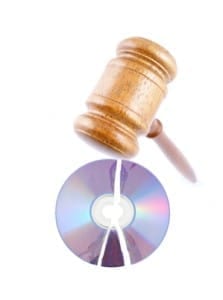Capitol Records and the Digital Music Resale Law
In some ways the concept sounds ridiculous: after a digital music file is originally sold, it can be sold again. Additionally, when it’s sold the second time, only the reseller gets paid, not the artist, label or anyone else that received compensation from the original transaction.
A judge recently ruled that ReDigi, a service designed to sell used digital song files, violated U.S. copyright law. But it looks like the case is just the beginning of the digital reselling issue, and it is likely that “recycled digital media” as ReDigi calls it will emerge in some fashion.
When every dollar counts for most independent artists in today’s music industry, this issue may hit close to home.
The History of Music Reselling

Reselling has been part of the music industry for decades, and you can see its evidence in the used bin at any local record store. During that time, the practice has remained somewhat controversial, since artists are not compensated for their work when it is sold the second time.
Regardless, the practice is clearly legal under U.S. copyright law because there is a physical copy to resell under the “first sale doctrine.” It is also legal to resell books, DVDs and other media.
Selling Digital Again
When selling (or reselling) a digital copy, there obviously is no physical object to exchange, and this is where the judge’s ruling in the ReDigi case comes from.
The music reselling company claims that their technology takes a digital file from the original owner and transfers that same file (not a copy) to the new buyer’s computer, thereby ensuring the file is no longer on the original owner’s hard drive.
But Capitol Records, the label that brought the suit against ReDigi, claims the product going to the second buyer is in fact a copy of the file and not the original, thereby violating copyright terms because it copied Capitol’s work without authorization.
It’s not the reselling that was ruled illegal, it was the copying of the file. This likely brings up more questions than it answers, as it still doesn’t specifically rule if digital resales are covered under the “first sale doctrine.” The rulings on this in the future likely will affect not only the music industry, but also the book and movie industries.
Is There a Future in Reselling
Any look at the future of the issue is speculation at this point, but signs seem to indicate the practice will be explored further. ReDigi already has claimed it has new technology that will allow it to continue selling used files that will not be in violation of the copyright law.
Moreover, both Apple and Amazon have filed patents relatively recently that essentially allow them to “loan” digital copies to customers, which also could have an effect on this issue. With those big players weighing in, it’s likely we’ll see some new precedents set in courts in the coming months and years.
What Does Music Reselling Mean for Independent Artists?
Despite being controversial, the first sale doctrine has been around for a very long time. Still, the music industry is an extremely different place today than it was when the last major copyright act was passed in 1976.
What this means for independent musicians will depend on the aforementioned new precedents that are set, but it’s highly doubtful the ReDigi ruling is the last court case we’ll see on the issue.




